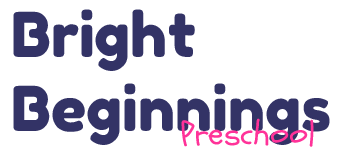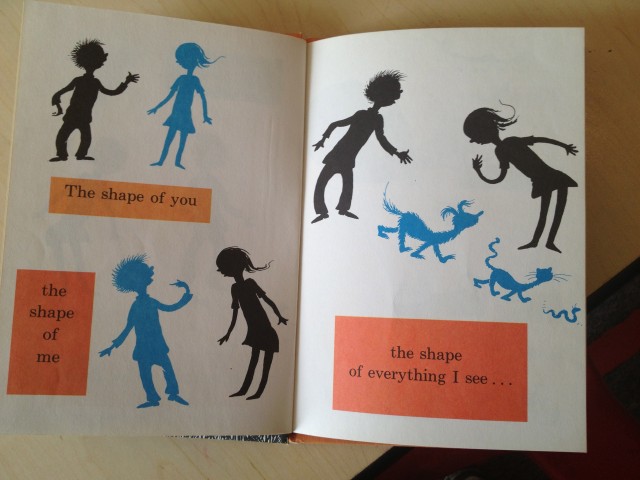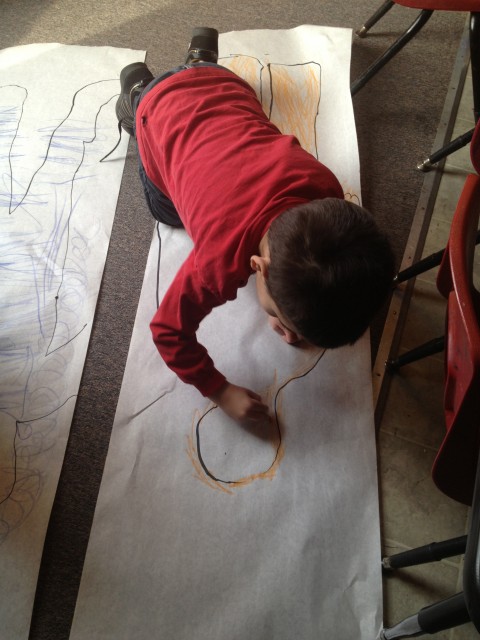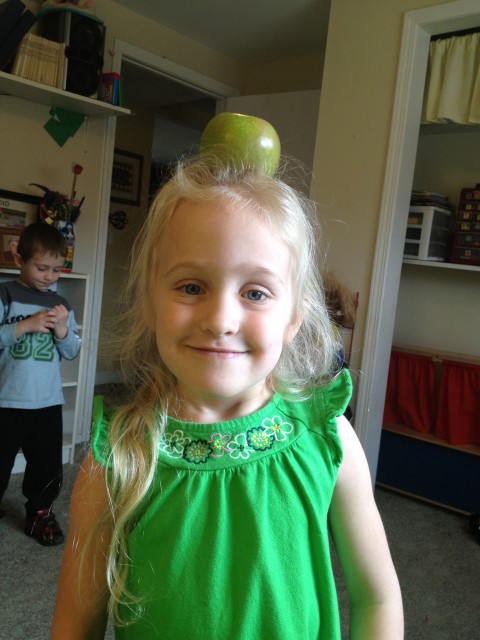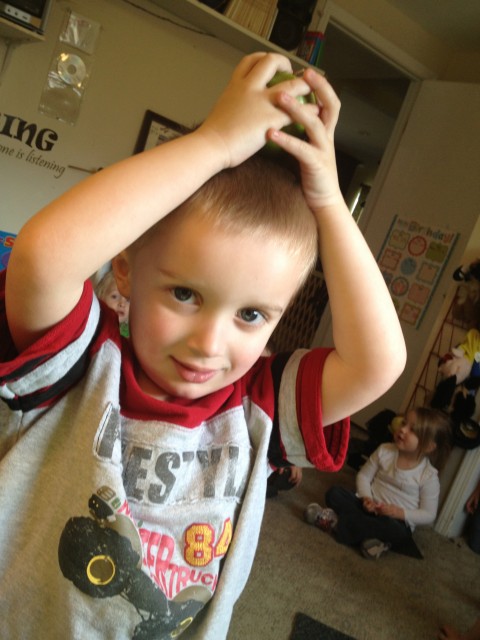The Shape of Me / Ten Apples
The Shape of Me / Ten Apples
Today’s books were ” The Shape of Me ” and ” Ten Apples Up on Top.”
For “The Shape of Me “i traced the kids bodies on large sheets of paper and let them fill in the details. They loved drawing on such big pieces of paper.

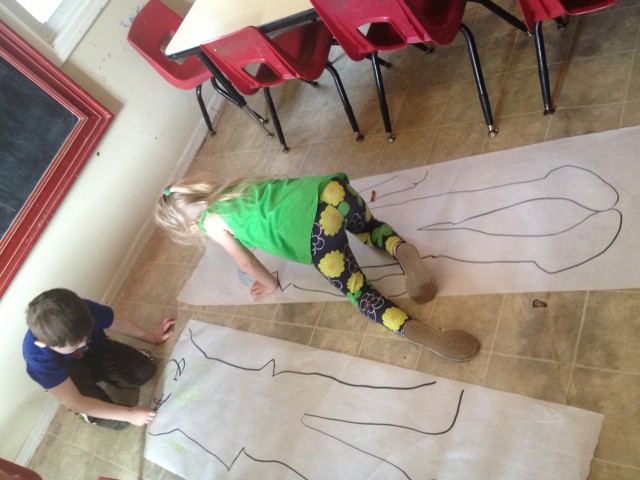 For ” Ten apples up on Top” we tried to balance just one apple on top and boy was it hard.
For ” Ten apples up on Top” we tried to balance just one apple on top and boy was it hard.
We have had a great week learning about rhyming.
Deanna Masle from preschooleducation.blogspot.com wrote a great article about rhyming.
Learning To Read: Why Is Rhyme Important?
One key reason why rhyme is important is that it is fun. Playing with rhyme is learning but because it is just that — playing — children are willing to spend a lot of time rhyming and learning more about rhyme. This makes rhyme a great teaching tool and a great motivator for learning. Rhymes are easier to learn and remember than non-rhymes and that is why many learning tools for older children and adults still include rhyme.
Rhyme is important to emergent literacy and learning to read because it teaches children about the language. Rhyming helps children learn about word families such as let, met, pet, wet, and get. Rhyming also teaches children the sound of the language. Other important skills include phonological awareness, the ability to notice and work with the sounds in language. Rhymes help children with phonemic awareness, which is the knowledge that phonemes are the smallest units of sounds that make up words. This awareness leads to reading and writing success.
Rhyme also teaches children who are learning to read about the patterns and structures of both spoken and written language. Songs and rhymes expose your child to the rhythm of the language. This will help them read with some animation in their voice instead of just a monotone. Rhyme also prepares children to make predictions while learning words and gives them crucial decoding skills.
While learning to read is difficult and challenging for most children, rhyme can help make the task both easier and more fun, teach important language skills, and teach language patterns and structure. These three benefits are important reasons to make rhyme a part of your child’s early childhood
